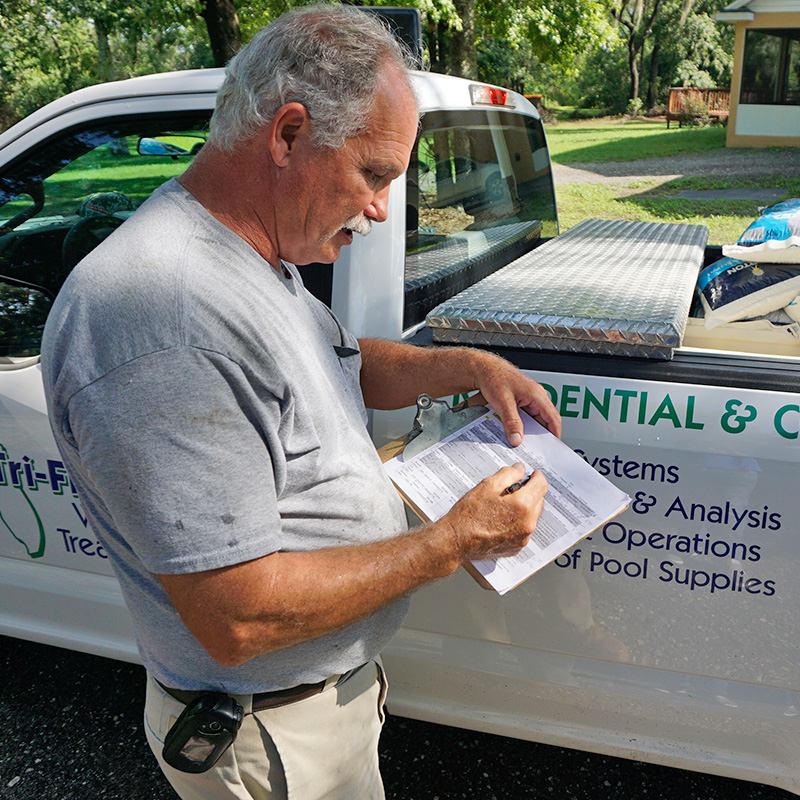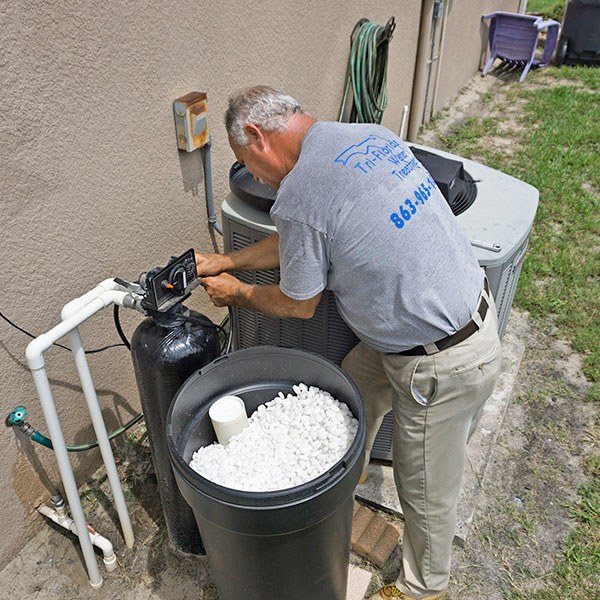Different Filters Types of Water Filters You Should Know About
Clean water is essential. Many illnesses and medical problems can be caused by drinking and bathing in unclean water. Even though the state of Florida has amazing water quality compared to developing nations, dangerous contaminants can still find their way into your water. Installing a water filter can set your mind at ease by ensuring the water you drink is safe.
A water filter can do even more than purify your water! It can also make it taste and smell better by removing unpleasant odors and tastes. But not all water filters are created equally. Knowing the difference between water filters can help you find the best one for your home.
 Pre-Filter
Pre-Filter
A pre-filter is part of a multi-filter purification system. It’s designed to catch dust, pollen, sediment, and other visible impurities. The main purpose of this filter is to remove larger impurities before the water goes through another filter. Filtration systems with a pre-filter also last longer because it prevents the primary filter from becoming clogged quickly.
Reverse Osmosis
Reverse osmosis (RO) filters purify water by forcing it through a semipermeable membrane. The small pores in the membrane prevent contaminants from passing through. Charged particles in the water are also used to remove ions from contaminates and dissolve organic molecules. This process produces the purest water.
RO filters can remove many contaminants that would be hazardous to your health. The list includes chlorine, arsenic, VOCs, lead, herbicides, and pesticides. A RO filter can even remove fluoride and sediment.
Activated Carbon Filter
Activated carbon filters are the most common filters. They are used in under-the-sink and pitcher filters along with whole-home filtration systems. Activated carbon filters remove contaminants and impurities from water by absorption. As water passes through the filter, organic compounds bond, or stick to the carbon. This type of filter is extremely effective at removing bad tastes and odors from water. It can also remove chlorine, trihalomethanes (THMs), pesticides and herbicides, and even lead (though only if certified).
 Alkaline or Water Ionizer Filter
Alkaline or Water Ionizer Filter
If you are a fan of alkaline water, you may be attracted to an alkaline filter. Alkaline water filters use electrolysis to filter water by separating it into two water streams: acidic and alkaline. While this process is great for improving the pH of your water, it doesn’t remove contaminates. Mercury, sulfate, nitrate, and Fluoride are a few examples of harmful alkaline contaminants that would not be removed by an alkaline/water ionizer filter.
If you are interested in an alkaline filter, be sure to get a combined filter that includes an activated carbon filter or RO filter as well.
UV Filters
UV filters use ultraviolet radiation to deactivate living organisms in the water. This type of filter is designed for water that is contaminated with bacteria or viruses. The list of harmful organisms that UV filters remove includes dysentery bacilli, salmonella, mycobacterium tuberculosis, streptococcus, E. coli, and hepatitis B. It can also kill algae and fungi. While it is incredibly effective at destroying harmful bacteria, it won’t remove sediment, chemicals or another particle contaminates.
It also won’t improve the taste or smell of your water.
What filter should you choose?
The best water filter for your home depends on the quality of your water. If you have great tasting well water, a UV filter might be a smart solution if bacteria are living in your well. If you have an old plumbing system that is leaching lead into your water, a certified activated carbon filter maybe your best option. Testing your water is the only way to know what type of filter you need. You can get your water tested for free by Tri-Florida Water Treatment! We offer free in-home water tests for residents throughout the Lakeland Florida area. Give us a call today to set up an appointment!
